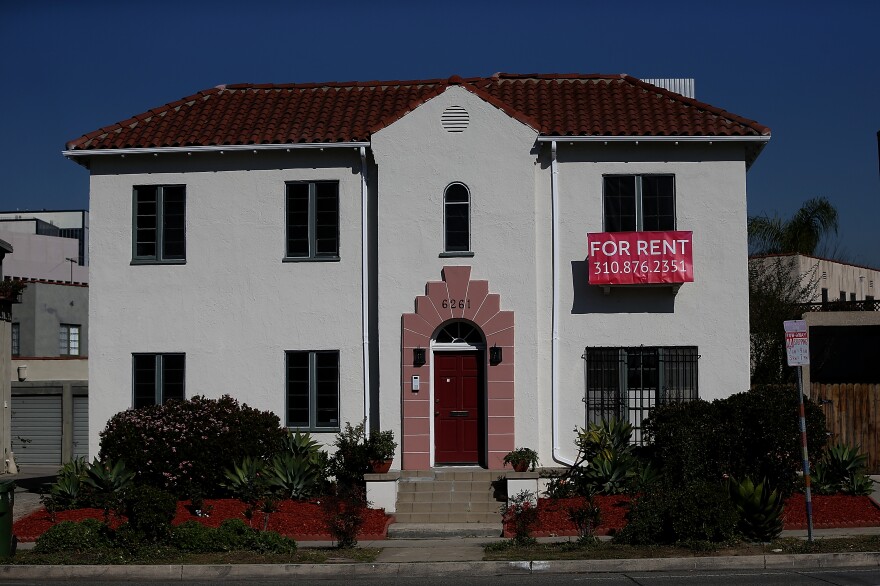Truth matters. Community matters. Your support makes both possible. LAist is one of the few places where news remains independent and free from political and corporate influence. Stand up for truth and for LAist. Make your tax-deductible donation now.
This archival content was originally written for and published on KPCC.org. Keep in mind that links and images may no longer work — and references may be outdated.
LA struggles to get vacancy data in face of housing crisis

Los Angeles planners are missing important data on vacancy rates that they need to decide whether rent-restricted apartments should be allowed to turn into condominiums, city officials were told this week.
Over the years, thousands of the rentals have been converted for sales to the alarm of housing advocates, who say the conversions contribute to the city's growing housing crisis.
It's the city's job to ensure new for-sale, condos don’t hurt the rental market. They rely on vacancy rates to indicate how a condominium project will affect a neighborhood's rental market. A rate below 5 percent is a sign the area needs more rentals.
"If there’s more available supply, we‘d be more comfortable with a condominium conversion to go forth," said Claire Bowin, senior city planner.
The problem is planners don't have the latest or most accurate vacancy numbers to help inform their decisions.
The city used to get the information from the Los Angeles Department of Water and Power. But DWP changed its computer systems several years ago, and that data is no longer available.
Richard Thomas, DWP's general counsel, said that it would cost money for the department to start gathering vacancy data covering the city's 1.4 million units.
"You can always look back and say, 'You should have coordinated more fully," Thomas told the City Council's Housing Committee this week. "But the department made the choice to have their system to run utilities operations, not other city departments'."
Planners say they could use census data, but it’s not as accurate as the DWP numbers and lags by a couple years.
Councilmember Paul Koretz, who introduced a motion to have the city gather more accurate vacancy data, said his district, including Hollywood, has been rife with condo conversions.
"It’s very likely we’re under 5 percent," Koretz said. "If we had that number and we were applying it, we would be halting our approval of condo conversions."
Housing advocate Carlos Aguilar of the Coalition for Economic Survival said it's not fair to tenants who need vacancy rate data to fight condo conversion projects. "By not providing accurate vacancy data, tenants are operating on a rigged system stacked against them," Aguilar said.
Those representing developers such as Shane Philips of the Central City Association also want accurate vacancy data. But they want to demonstrate when a neighborhood needs more housing development.
"We know the rental rates in L.A. are at a historic low and the housing shortage is at the root cause of our affordability crisis," Philips said.
Philips said the vacancy data would go a long way "toward debunking anti-housing arguments about the occupancy of newly-built buildings."
The housing panel directed city departments to come up with a solution to address the lack of accurate, up-to-date data on vacancies.








